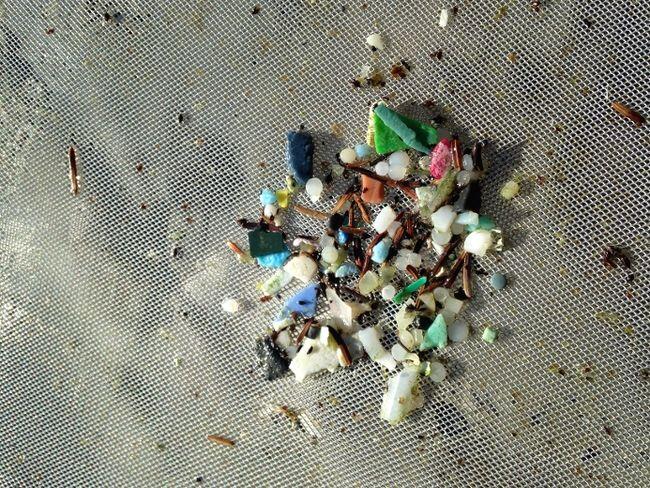Everyone has a role to play in turning the tide on the growing problem of plastic pollution in the Great Lakes.
That’s the message from Lake Huron Centre for Coastal Conservation outreach specialist Rhiannon Moore, who is working to educate people on simple ways to help combat the issue.
“I think there’s a lot of people that feel kind of helpless. They hear about all these environmental problems and they think, it’s totally out of my hands and I’m not sure what to do,” she said in an interview.
But things like participating in shoreline cleanups, avoiding products that contain plastic microbeads or microfibres and using less plastic can all create a positive impact, she said.
“I always say, no excuse for single use. Just think of all the things that you use every day or every week that you use just once that are made of plastic. So that’s the coffee cup and that plastic lid or your Iced Capp with the plastic straw. A plastic fork. Anything like that. That all adds to our plastic footprint,” she said.
“We can’t just point the finger at industry. It’s your average Janes and Joes like me and you that are contributing to the unacceptable amount of plastics in our environment and it’s going to take a change in everyday behaviour to reduce our plastic footprint. We’re becoming such a wasteful society, but the good news is there are lots of alternatives to single-use plastic products or products containing microbeads.”
Moore will be discussing the problem of plastic pollution in Lake Huron and ways people can reduce their environmental impact Tuesday at 7 p.m. at the Sauble Beach Community Centre.
The event is part of a Beach Talk speaker series, organized by the local Plover Lovers group. Admission is free.
Moore said recent research has found an alarming amount of plastic debris in the Great Lakes.
One study she pointed to has estimated the abundance of microplastics in Lake Huron at 43,157 particles per square kilometre.
An American study from 2012 concluded there is as much plastic in the Great Lakes as there is in two massive gyres in the world’s oceans.
It’s a serious problem for people, aquatic life and other animals and the environment, she said.
“There’s 40 million people that are living around the Great Lakes and we rely on them for our drinking water and all sorts of other recreational opportunities. The lake is a huge part of our life and if it’s polluted, that’s not healthy for us and it’s not healthy for wildlife,” she said.
“Of course, we eat fish out of the lake and the fish are consuming these little bits of plastic which aren’t healthy for us either.”
Recently, the federal government listed the tiny microbeads found in exfoliants and cleansers as toxic under the Environmental Protection Act, which paves the way for a possible ban on the substance.
The government says the microbeads can slip through wastewater treatment plants and end up in rivers, lakes and oceans. They can then be ingested by fish and birds, which allows them to enter the food chain.
Moore said listing microbeads as a toxic substance is a “great first step.”
Meanwhile, the Lake Huron Centre for Coastal Conservation is working to reduce another major contributor to the problem of plastic debris in the Great Lakes.
Moore is heading the organization’s “Butt Free Beach” campaign, which aims to eliminate cigarette butts – the most common litter item found on Lake Huron’s public beaches – from the shoreline.
“It’s not well-known but cigarette filters are actually made of a type of plastic called cellulose acetate and that type of plastic doesn’t biodegrade,” she said.
The organization says cigarette butts contain up to 165 chemicals and have been found in the stomachs of fish, birds and turtles.
The “Butt Free Beach” campaign includes a public education component, which includes installing signs and posters that encourage people to not bury or toss their butts in the sand or discard them in the water.
The Coastal Centre is also working with municipalities to make cigarette butt recycling bins and reusable and recyclable paper ash trays available on Lake Huron beaches, including at Sauble Beach.
Talks like the one at the Sauble Beach Community Centre are another way the Coastal Centre is getting the message out about the problem of plastic pollution, she said.
Source: Sun Times











